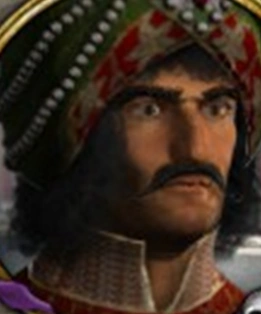The first mention of Gog and Magog occurs in the Book of Ezekiel (Chapters 38–39). There are some biblical historians and theologians that believe Gog is an individual and Magog is his land, while other scholars think Gog and Magog are two separate nations. In the Book of Revelation (20:8), Gog and Magog together refers to the hostile nations in the world. Regardless of the various theories, the end results will produce a major war, unlike any mankind has seen before.
According to the Hebrew and Christian Bibles, this land is a prophesied enemy nation of God's people in accordance with the words of the Prophet Ezekiel.
The Gog/Magog prophecy is meant to be fulfilled at the approach of what the Christians call the "End Times" and the Jews refer to as "End of the Age".
The Christian interpretation is powerfully apocalyptic: making Gog and Magog allies of Satan against the Great Creator at the end of the millennium, as can be read in the Book of Revelation. Jewish eschatology views Gog and Magog as enemies to be defeated by the Messiah, which will usher in the "Age of the Messiah".
In the Jewish Midrash it states: After the failure of the anti-Roman Bar Kokhba revolt [in the 2nd century A.D.], which was led by Simon bar Kokhba, the Jews looked to a human leader as the promised messiah and began to conceive of the Messianic Age in supernatural terms.
The exegetical texts in the classical rabbinic literature of Judaism, treat Gog and Magog as two names for the same nation who will come against Israel in mankind's final war. The rabbis associated no specific nation or territory with them beyond a location to the north of Israel. However, the Jewish scholar, Shlomo Yitzchaki, who today is commonly known as Rashi, identified the Christians as their allies and said God would thwart their plan to kill all Israel.
During the era of the Greek and Roman Empires, the 1st century A.D. Jewish scholar and historian, Titus Flavius Josephus, identified the Gog and Magog people as Scythians, who were horse-riding barbarians from around the Don and the Sea of Azov, located in Eastern Europe. The Scythians, who lived during Classical Antiquity (600 B.C. - 300 A.D.), were among the earliest peoples to master mounted warfare.
 Josephus the Historian explained the Scythians were descendants of Magog the Japhethite [who, in turn, was descended from Noah's oldest son, Japheth] and conveyed the tradition that Gog and Magog were locked up by Alexander the Great behind iron gates in the "Caspian Mountains", which most scholars generally identify with the Caucasus Mountains. This legend must have been current in contemporary Jewish circles by the 1st century A.D., which also coincided with the beginning of the Christian Era. A few centuries later, this material was extremely embellished in the 7th century A.D. literary work, Apocalypse of Pseudo-Methodius, which is noted for shaping and influencing Christian eschatological thinking in the Middle Ages.
Josephus the Historian explained the Scythians were descendants of Magog the Japhethite [who, in turn, was descended from Noah's oldest son, Japheth] and conveyed the tradition that Gog and Magog were locked up by Alexander the Great behind iron gates in the "Caspian Mountains", which most scholars generally identify with the Caucasus Mountains. This legend must have been current in contemporary Jewish circles by the 1st century A.D., which also coincided with the beginning of the Christian Era. A few centuries later, this material was extremely embellished in the 7th century A.D. literary work, Apocalypse of Pseudo-Methodius, which is noted for shaping and influencing Christian eschatological thinking in the Middle Ages.
The Muslim Concept
 In the Qur'an, Gog and Magog are referred to as Yajuj and Majuj, adversaries of Dhul-Qarnayn, whom are widely equated with Cyrus the Great and likened unto al-Iskanadar (Alexander the Great) in Islam.
In the Qur'an, Gog and Magog are referred to as Yajuj and Majuj, adversaries of Dhul-Qarnayn, whom are widely equated with Cyrus the Great and likened unto al-Iskanadar (Alexander the Great) in Islam.
Geographic Muslim scholars identified them at first with Turkic tribes from Central Asia and later with the Mongols. In modern times they [Yajuj and Majuj] remain associated with apocalyptic thinking, especially in the United States and the Muslim world.
According to Muslim tradition, the diverse comparison of Gog and Magog - with the legend of Alexander and the Iron Gates - was propagated throughout the Near East in the early centuries of the Christian era. In Surah 18 of the Qur'an, Yajuj and Majuj (Gog and Magog) are suppressed by Dhul-Qarnayn "the two-horned one", which is commonly interpreted to mean either, Cyrus the Great or Iskandar (Alexander the Great). Dhul-Qarnayn, who also is identified in the Hadith as a figure empowered by Allah (God) to erect a wall between mankind and Gog and Magog, journeyed to the ends of the world; and, met "a people who scarcely understood a word" but helped to build a barrier that would separate them from the people of Yajuj and Majuj, who "do great mischief on earth". They did agree to build the barricade, but warned that when the time comes [during the Last Age], Allah will remove the barrier and Yajuj and Majuj will swarm through.
 The early Muslim traditions were summarized by Zakariya al-Qazwini, a notable 13th century B.C. Persian physician, astronomer, and geographer. His summations were found in two popular works, cosmographical and geographical, with the cosmographical entitled, "Marvels of Creatures and the Strange Things Existing" and his geographical dictionary "Monument of Places and History of God's Bondsmen". Gog and Magog, he says, lived near to the sea that encircles the Earth and can be counted only by Allah; they were only half the height of a normal man, with claws instead of nails and a hairy tail and huge hairy ears which they use as mattress and cover for sleeping. They scratch at their wall each day until they almost break through, and each night Allah restores it, but when they do break through they will be so numerous that "their vanguard is in Syria and their rear in Khorasan".
The early Muslim traditions were summarized by Zakariya al-Qazwini, a notable 13th century B.C. Persian physician, astronomer, and geographer. His summations were found in two popular works, cosmographical and geographical, with the cosmographical entitled, "Marvels of Creatures and the Strange Things Existing" and his geographical dictionary "Monument of Places and History of God's Bondsmen". Gog and Magog, he says, lived near to the sea that encircles the Earth and can be counted only by Allah; they were only half the height of a normal man, with claws instead of nails and a hairy tail and huge hairy ears which they use as mattress and cover for sleeping. They scratch at their wall each day until they almost break through, and each night Allah restores it, but when they do break through they will be so numerous that "their vanguard is in Syria and their rear in Khorasan".
When Yajuj and Majuj were identified with actual people it was the Turks, who threatened Baghdad and northern Iran; later, when the Mongols destroyed Baghdad in 1258 A.D., it was they who were considered Gog and Magog.
 |
| Depiction of Caliph Al-Wathiq |
The wall dividing them from civilized people was normally placed towards Armenia and Azerbaijan, but in the year 842 A.D. the Caliph Al-Wathiq had a dream in which he saw that it had been breached, and sent an official named Sallam to investigate [the wall]. Sallam returned a little over two years later and reported that he had seen the wall and also the tower where Dhul Qarnayn had left his building equipment, and all was still intact. It is not entirely clear what Sallam saw, but he may have reached the Jade Gate (known today as Yumen Pass), the westernmost customs point on the border of China.
Somewhat later the 14th-century traveller Ibn Battuta reported that the wall was sixty days' travel from the city of Zeitun, which is on the coast of China; the translator notes that Ibn Battuta has confused the Great Wall of China with that built by Dhul-Qarnayn.
~~~~~~~~~~~~~~~~~~~~~~~~~~~~~~~~~~~~~~~~~~~~~~~~~~~~~~~~
Over many centuries, the theory of Gog and Magog have produced many coinciding similarities and obvious differences, yet one thing remains intact among the Abrahamic religions: they all agree that a prophetic Gog and Magog War will definitely occur one day. Some scholars and theologians of religion believe this catastrophic war is currently on the near horizon and that mankind needs to prepare for such an apocalyptic event.
"Son of man, set thy face against Gog, the land of Magog, the chief prince of Meshech and Tubal, and prophesy against him," ~ Yechezkel (Ezekiel) 38:2 [Tanakh:Nevi'im]
"And shall go out to deceive the nations which are in the four quarters of the earth, Gog, and Magog, to gather them together to battle: the number of whom is as the sand of the sea." ~ Revelation 20:8 [Holy Bible]
"They said, “O Zul-Qarnain, the Yajuj and Majuj are spreading chaos in the land. Can we pay you, to build between us and them a wall?” He said, “What my Lord has empowered me with is better. But assist me with strength, and I will build between you and them a dam.” ~ The Cave:18.94-95 [Qur'an]
~~~~~~~~~~~~~~~~~~~~~~~~~~~~~~~~~~~~~~~~~~~~~~~~~~~~~~~~
"Son of man, set thy face against Gog, the land of Magog, the chief prince of Meshech and Tubal, and prophesy against him," ~ Yechezkel (Ezekiel) 38:2 [Tanakh:Nevi'im]
"And shall go out to deceive the nations which are in the four quarters of the earth, Gog, and Magog, to gather them together to battle: the number of whom is as the sand of the sea." ~ Revelation 20:8 [Holy Bible]
"They said, “O Zul-Qarnain, the Yajuj and Majuj are spreading chaos in the land. Can we pay you, to build between us and them a wall?” He said, “What my Lord has empowered me with is better. But assist me with strength, and I will build between you and them a dam.” ~ The Cave:18.94-95 [Qur'an]

No comments:
Post a Comment